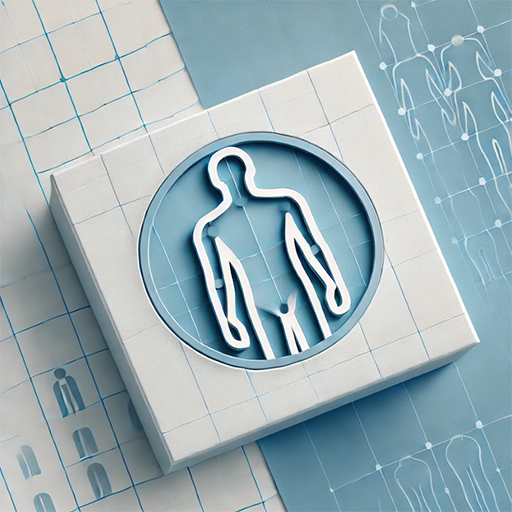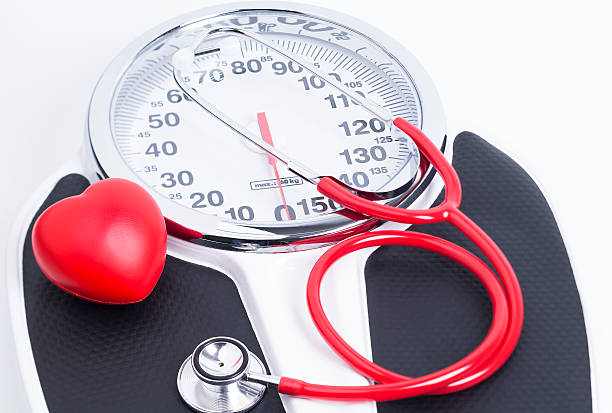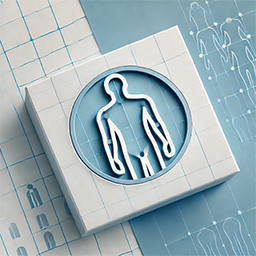Why Losing Weight Is Good for Your Heart
Carrying extra weight puts added stress on your body—especially your heart. If you’ve been diagnosed with high blood pressure or are at risk for heart disease, losing weight can make a big difference. Even a small amount of weight loss can lower your blood pressure, improve heart function, and boost your overall health. Taking steps to reach a healthy weight is one of the best ways to protect your heart and reduce your risk of serious health problems.
Weight loss isn’t just about appearance—it’s about your health. Dropping even a few pounds can help you feel better, move easier, and live longer. Studies show that a small amount of weight loss can lead to major benefits for your heart, blood vessels, and overall well-being. It can also lower your risk for serious conditions like heart disease and high blood pressure.
In this post, you’ll discover how weight loss can help you:
- Lower your blood pressure
- Boost your cardiovascular health
- Cut your risk for heart disease
- Increase your energy so you can stay active
We’ll break down why losing weight is good for your heart and share simple ways to make it part of your healthy lifestyle.
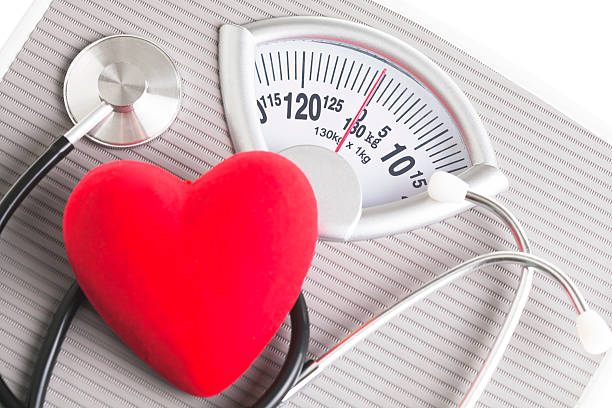
How Extra Weight Affects Blood Pressure
High blood pressure (hypertension) happens when the force of blood pushing against your artery walls is too high. If this pressure stays high over time, it can damage your arteries and make them less flexible. This increases your risk of serious health problems like heart attacks, strokes, and kidney damage. Managing your blood pressure is key to protecting your heart and overall health.
Extra Body Fat Increases Blood Pressure
Here’s how extra weight can lead to higher blood pressure:
- More fat tissue means more blood vessels. Your heart has to pump harder to move blood through all that extra tissue, which raises blood pressure.
- Belly fat can cause insulin resistance and inflammation. These issues can damage the lining of your blood vessels over time.
- Sleep apnea is common in people with obesity. This condition can interrupt breathing during sleep and lead to higher blood pressure levels.
According to the Centers for Disease Control and Prevention (CDC), high blood pressure is a major risk factor for heart disease—which is the leading cause of death in the United States.
The Link Between Weight Loss and Lower Blood Pressure
The good news? Losing just a few pounds can help start lowering your blood pressure. Even small changes in your weight can take stress off your heart and improve how your blood flows through your body.
Small Changes Make a Big Difference
Studies show that for every 2.2 pounds (1 kilogram) of weight you lose, your blood pressure may drop by:
- 1 mmHg in systolic pressure (the top number)
- 1 mmHg in diastolic pressure (the bottom number)
That means losing just 10 pounds could lower your blood pressure by 5 to 10 points—a big step toward better heart health! According to the American Heart Association, reaching and maintaining a healthy weight may also lower your need for blood pressure medicine.althy weight can reduce your need for blood pressure medication.
How Weight Loss Improves Cardiovascular Health
Your heart is a muscle, and just like other muscles in your body, it works best when it’s in a healthy state. Keeping your heart strong means giving it the right support—like regular exercise, a balanced diet, and a healthy weight. When your heart doesn’t have to work as hard, it can pump blood more easily and keep you feeling your best.
Benefits of Shedding Extra Pounds for Your Heart
Here are some heart health benefits of losing weight:
- Less strain on your heart: When you lose weight, your heart doesn’t have to work as hard to pump blood through your body.
- Better cholesterol levels: Weight loss can raise HDL (good) cholesterol and lower LDL (bad) cholesterol, which helps protect your arteries.
- Lower risk of blood clots: Extra weight increases clotting factors, raising the risk of heart attacks and strokes.
- Improved blood sugar control: Weight loss helps manage or prevent diabetes, which is closely linked to heart disease.
According to the National Heart, Lung, and Blood Institute, losing just 5–10% of your body weight can lead to major improvements in heart health.oves significantly with just a 5–10% reduction in body weight.
Best Ways to Lose Weight for Better Heart Health
You don’t need extreme diets or intense workouts to make a difference. The key is to build healthy habits that are easy to stick with and good for your heart. Simple changes—like eating balanced meals, moving more each day, and getting enough sleep—can lead to lasting results.
1. Eat a Heart-Healthy Diet
A healthy diet can help you lose weight and lower your blood pressure. Choosing the right foods gives your body the fuel it needs while supporting your heart. Eating more fruits, vegetables, whole grains, and lean proteins can make a big difference in your overall health.
Try these simple diet tips to support weight loss and lower blood pressure:
- Cut back on salt. Too much sodium can raise your blood pressure over time.
- Eat more fruits and vegetables. They’re rich in fiber, vitamins, and antioxidants that help protect your heart.
- Choose whole grains. Foods like oats, brown rice, and quinoa help you feel full and give your body lasting energy.
- Limit added sugar and processed foods. These can lead to weight gain and increase your risk of heart disease.
- Use healthy fats. Olive oil, nuts, and avocados can help improve your cholesterol levels.
Also, consider following the DASH diet (Dietary Approaches to Stop Hypertension)—a heart-healthy eating plan proven to help lower blood pressure naturally.
2. Get Regular Physical Activity
Exercise makes your heart stronger and helps you burn fat. Try to get:
- 30 minutes of moderate activity each day, like brisk walking, biking, or swimming
- Strength training 2–3 times a week to build lean muscle and boost your metabolism
- Short sessions count too. Three 10-minute walks add up and still give heart benefits
According to Harvard Health, combining aerobic exercise with resistance training is one of the best ways to support heart health and manage weight.ic and resistance training as two of the best exercises for heart health.
3. Manage Stress
Stress can raise your blood pressure and make you crave unhealthy foods. To feel calmer and stay on track, try:
- Deep breathing or meditation to relax your body and clear your mind
- Yoga or gentle stretching to release tension and improve circulation
- Spending time in nature or with loved ones to boost your mood and lower stress levels
4. Get Enough Sleep
Not getting enough sleep can lead to weight gain and higher blood pressure. Aim for 7 to 9 hours of sleep each night to give your body time to rest, heal, and stay balanced. Good sleep helps control hunger hormones and supports a healthy heart.

How Much Weight Should You Lose?
You don’t have to be skinny to be healthy. Losing just 5–10% of your body weight can lead to big health improvements, especially for your heart and blood pressure.
For example:
- If you weigh 200 pounds, a goal of losing 10–20 pounds can make a real difference.
- If you weigh 160 pounds, try aiming for a loss of 8–16 pounds.
Focus on steady progress. Losing 1 to 2 pounds per week is a safe and healthy pace that you can stick with over time.
Tips to Stay on Track
Weight loss takes time, but consistency is key. Here are simple ways to stay focused:
- Keep a food journal. Writing down what you eat can help you notice patterns.
- Set small goals. Try losing 5 pounds first, then another 5.
- Find a buddy. Having a friend or group for support helps you stay motivated.
- Reward progress (not with food!). Treat yourself to a new book, clothes, or experience.
- Be kind to yourself. One off day doesn’t mean failure. Keep going!
What to Watch Out For
While losing weight has many benefits, be mindful of:
- Fad diets that are too restrictive
- Skipping meals, which can lead to binge eating later
- Overexercising, which can lead to burnout or injury
- Unrealistic expectations—slow and steady wins the race
Talk to your doctor before starting any weight loss plan, especially if you have health conditions or take medication for blood pressure.
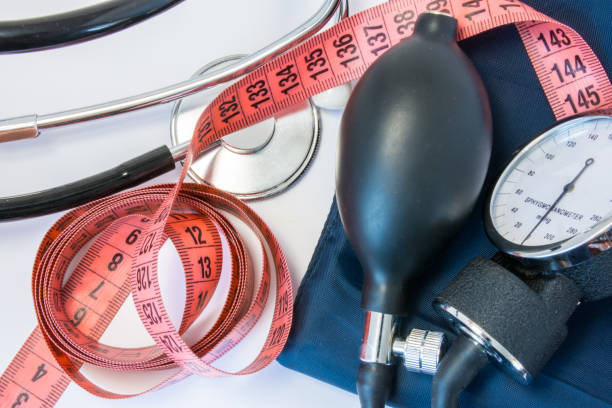
Real Stories: Weight Loss Success and Better Heart Health
Many people who lose weight see real improvements in their heart health.
One study published in The Lancet showed that patients who lost weight on a calorie-restricted diet had better blood pressure, cholesterol, and blood sugar levels after just 12 weeks.
Others report more energy, fewer medications, and a greater sense of well-being. You could be next!
Final Thoughts: Your Heart Will Thank You
Shedding pounds can lower your blood pressure and improve your heart health—no question about it. And the best part? You don’t need to lose a huge amount to see results.
Start small, stay consistent, and make choices that support a healthy lifestyle.
Your heart works hard for you every day. Help it out by taking care of your body—and your future.
Start today with one small change. Eat a little healthier, move a little more, or get better sleep. Every step counts.

